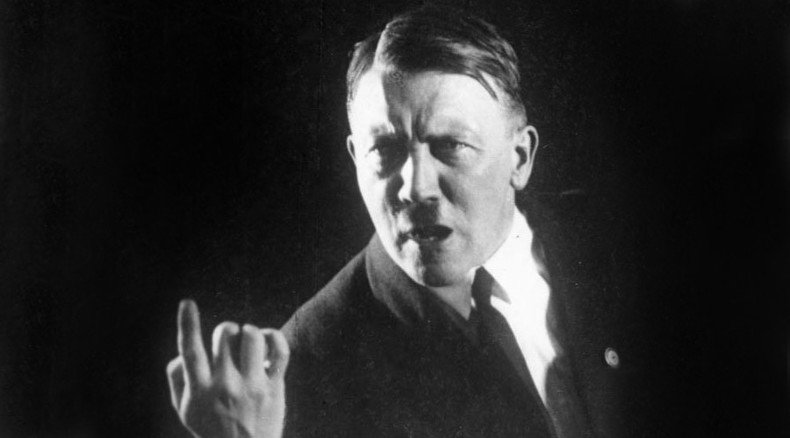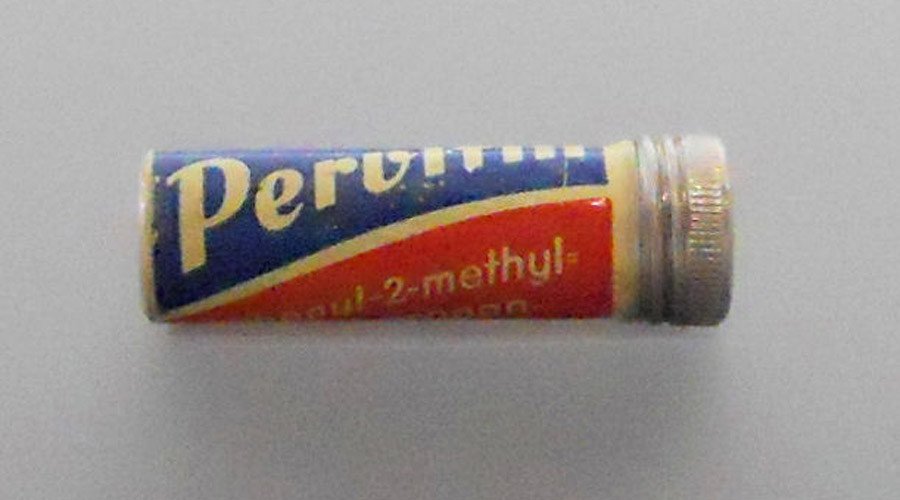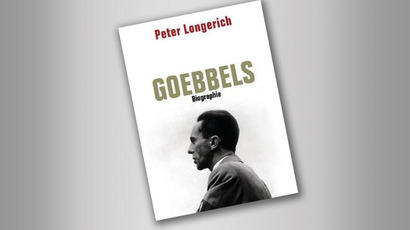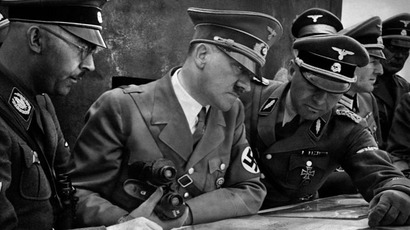Narco Nazis: Hitler was heavy drug abuser, German soldiers pill-poppers, book claims

The author of a new book on the role of narcotics in the Third Reich believes drugs not only proved decisive for some of Nazi Germany’s military successes, but also caused leader Adolf Hitler to plunge into continuous self-destructive drug abuse.
In ‘Der Totale Rausch’ (Total euphoria. Drugs in the Third Reich), Norman Ohler, writes that “Doctors and drugs account for much of the internal structure of Nazism.”
And Fuhrer Adolf Hitler was a drug enthusiast to say the least.
According to Ohler’s research, Hitler became excessively interested in drugs after Theodor Morell became his personal physician in 1936, when he prescribed the fuhrer a drug called Mutaflor to relieve the pain of stomach cramps.
Morell became Hitler’s drug dealer for years to come, prescribing the Nazi leader some most powerful drugs of the time, including intravenous injections of methamphetamine.
The doctor reportedly became feared by Hitler’s inner circle because Morell had so much influence on the fuhrer’s mood. Hermann Göring nicknamed Hitler’s personal doctor “the master of the bites of the Reich.”
Ohler estimates that Hitler was never actually ‘clean’ throughout all of the WWII, which explains the dictator’s talkativeness during public events and personal meetings, sudden changes of mood and other oddities in behavior, such as inexplicable decision-making.
Hitler’s drawings of fairytale castles and flowers sold for $450,000 at Nuremberg auction http://t.co/5kdFYkEOB3pic.twitter.com/S5CYODTVGe
— RT (@RT_com) June 22, 2015The author calculates that from 1941 through 1945, for 1,349 days, Hitler was given no fewer than 800 injections of methamphetamine, steroids and other substances from his personal physician, and took some 1,100 pills as well.
A 47-page dossier compiled by American Military Intelligence during the WWII maintained that the fuhrer was a ‘splenetic’ man who took over 74 different types of medication.
According to the British Channel 4 documentary ‘Hitler’s Hidden Drug Habit’,the leader’s final days in his bunker were relieved by nine injections of Vitamultin, a drug which contained methamphetamine among its ingredients.
Ohler maintains that extensive drug abuse in pursuit of almightiness took a toll on Hitler over several years: by the spring of 1945 his teeth were falling out and he was eating too much sugar to cope with withdrawal symptoms.
The Third Reich, just like the rest of the world in 1930s, was obsessed with methamphetamine-based stimulants, which became popular among existentialists, artists, students and sportsmen, La Stampa writes.
The whole world was amazed by the results of the American athletes at the 1936 Olympic Games in Berlin, to some extent thanks to such openly sold drugs as Benzedrine, a variety of amphetamine that hit the US market in 1933.
And the Germans – along with their leader – kept pace with the times, as Dr. Fritz Hauschild made the early version of crystal meth popular in Nazi Germany under the domestic brand name Pervitin, which was absolutely legal.

Even housewives were familiar with ‘wonders’ of the Pervitin, as its producer invented chocolates containing the drug.
But the really big-time consumers of Pervitin became German soldiers, which got hooked on it because it relieved fatigue and made them feel invincible. This obviously took a toll on their health.
Pervitin spread in the Wehrmacht, and was usually consumed in a form of a pill.
Operation Barbarossa: What would Europe look like if the Soviets hadn’t defeated Hitler?
http://t.co/dhAHnYl3RSpic.twitter.com/X4dl2mEkYf
— RT (@RT_com) June 22, 2015Between April and July of 1940 alone, more than 35 million 3mg doses of Pervitin were shipped to the German army and Luftwaffe.
As the Third Reich’s chief doctor Otto Ranke out it, Pervetin was a “militarily valuable drug.”
This drug investment brought some fruit. In 1940, during the military actions against France, Ranke strongly recommended generals, including General ‘Desert Fox’ Erwin Rommel the use of Pervitin. Rommel, who used the drug himself, followed the advice.
During the offensive in the Ardennes, Rommel’s tanks undertook a four-day march without stopping, demotivating the French troops greatly. That became the first-ever ‘amphetamine Blitzkrieg’ of the Wehrmacht, followed by other Drang Nach Osten (Push Eastward) operations in the east, against the Soviet Union.














